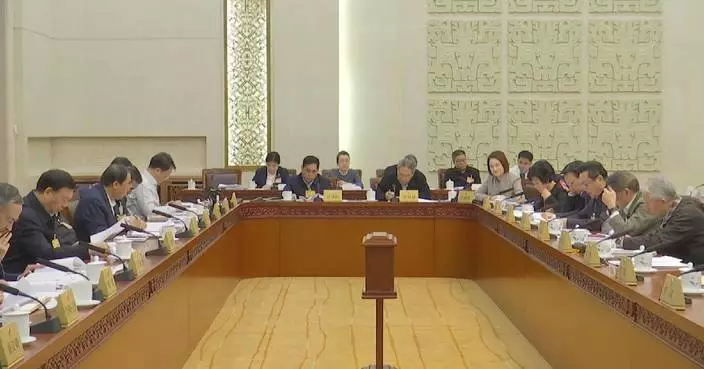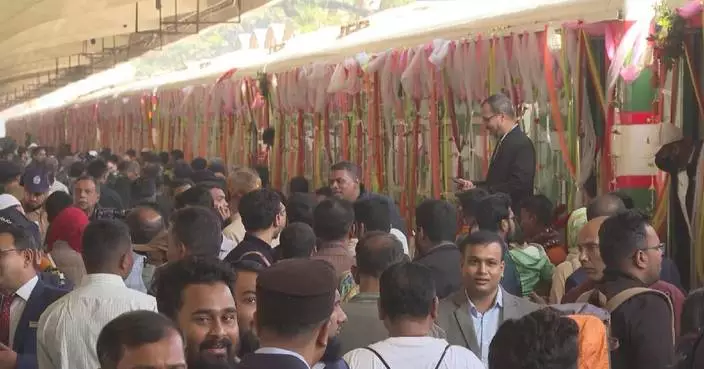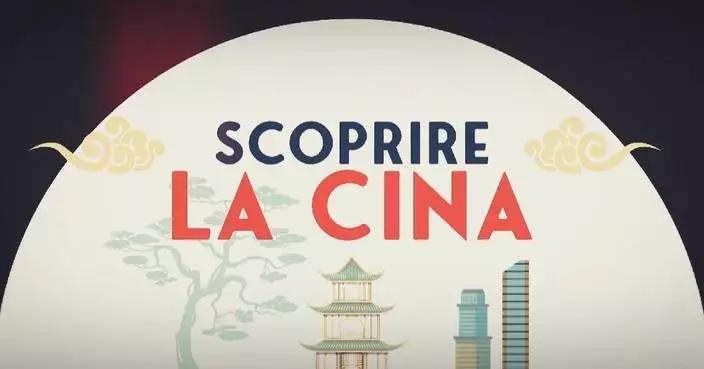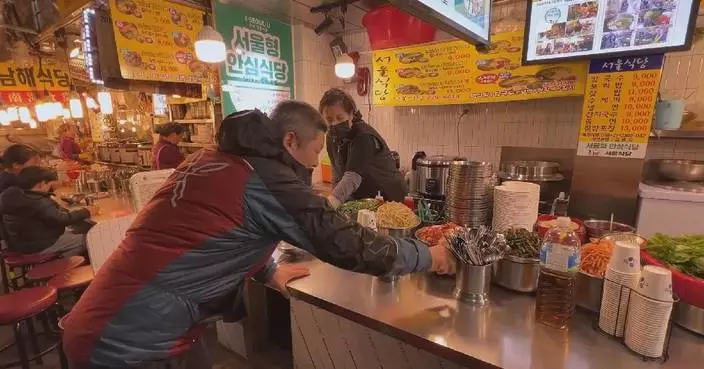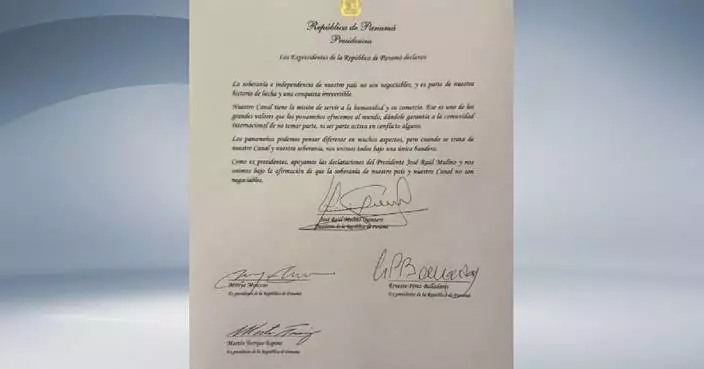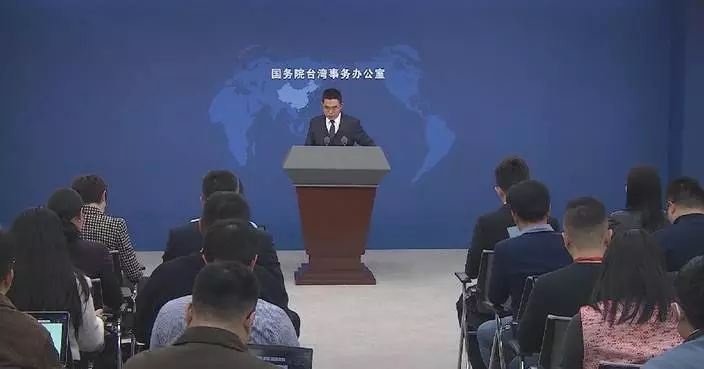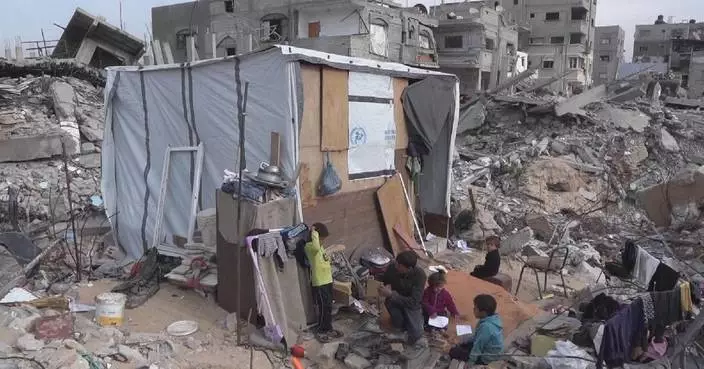In east China's Yiwu, a city famous for small commodity trades, businesspeople say they have sensed the uncertainties around the new tariff policy of the U.S. and started to prepare for possible challenges.
The Christmas vibe is in full swing in Yiwu, known as the "world's capital for small commodities", with data showing that eight out of every 10 Santa Claus models worldwide are from here.
Behind this commercial dominance lie price, product and purchasing ease.
"The products here are designed by us. We have competitive price and products. Our goods are sold to over a dozen [other] countries," said Yu Qiaofang, a Christmas accessory vendor.
Shops here, albeit small, sell products to dozens of other countries.
Due to the nature of the business, small gadgets here are sensitive to the changes of international economic landscape such as rise of tariffs and the fluctuations in exchange rate.
"We don't really had the concern. Since our production line is here, we do not plan to relocate. Instead, we aim to improve our products, making those more likable," Yu said.
Besides manufacturers, the supply chain has also started preparing to cope with the possible tariff changes.
Jin Xufeng owns a global logistics company. He said that businesspeople will always find a way to do business no matter how the "climate" changes.
"We are also diversifying our market, seeking new opportunities in emerging markets such as central Asia," Jin said.
Businesspeople in Yiwu said that they have seen worse. But experience has shown that as long as the demand is there, trade goes on.

Businesspeople in "capital for small commodities": Trade goes on with or without tariff
The Food and Agriculture Organization of the United Nations (FAO) estimated that daily fish catches in the Gaza Strip between October 2023 and April 2024 dropped to only 7.3 percent of that of 2022, which is expected to further worsen the food insecurity and famine risks in the region.
According to Ahmed El-Ejla, project coordinator at Al-Tawfiq Cooperative Society for Fisheries, many fishing boats, nets and conservation facilities were destroyed in the latest round of the Israel-Hamas conflict which broke out in October last year.
"Fishermen in Gaza are supposed to catch 15 to 20 tons of fish on a daily basis during this season. However, they would only catch 2 to 5 kilograms of fish everyday as of now," he said.
Khaled Radwan Ahmad Al-Laham, a 35-year-old fisher from Khan Younis who previously benefited from the marine cage farms within the FAO project, was able to make a living. He said the war had destroyed his life, and left local fishers in huge losses "We were able to get by before the war. The sea provided us with a source of income and employment. We were satisfied and getting by as everything just went fine. However, the war broke out and brought an end to everything." he said.
Israeli forces have imposed a fishing ban over adjacent waters off the Gaza Strip, which restricted the entry of local fishers, leaving most fishermen without an access to the sea for fishing.
Even if they fish in near-shore waters, fishermen still face great security risks.
"Most of the fishermen mention that their assets, their vessels, all of their belongings have been destroyed during the war. They cannot access the sea."said Wael Aldaya, FAO fisheries project manager.
Local fishers hope that they can reach the waters as early as possible to continue their normal lives. "My wish is that they could open the sea for us, so we can go fishing safely. Then I hope they would provide us with fishing supplies, like nets, fiberglass and these things, so we can survive on our own," said Khaled Radwan Ahmad Al-Laham, a local fisher. .
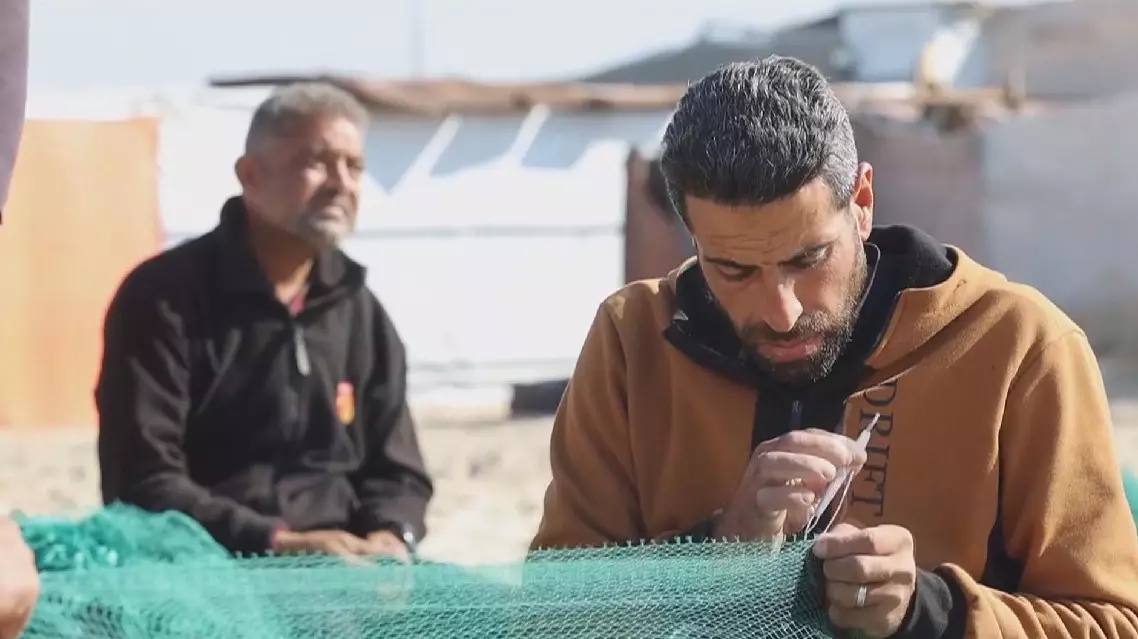
Gaza's fishing industry hit hard in latest round of Israel-Hamas conflict




